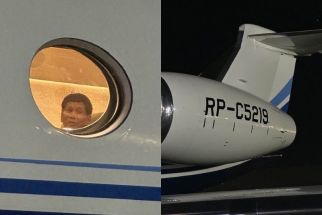Photos reveal stages of China reclamation at reef
MANILA, Philippines - The Philippines released yesterday several photographs showing different stages of reclamation work being done by the Chinese on Mabini (Johnson South) Reef, apparently in preparation for the construction of an airstrip.
In a statement, the Department of Foreign Affairs (DFA) said the photos were gathered from Philippine intelligence sources, and blasted Beijing for violating the Declaration on the Conduct of Parties in the South China Sea (DOC) and international law for its destabilizing move.
“Mabini Reef is part of the Kalayaan Island Group (KIG) which is part of Philippine territory,†the DFA said.
The Philippines protested on April 4 China’s reclamation work on Mabini Reef. Beijing rejected the protest.
President Aquino raised China’s reclamation on Mabini Reef during the recent ASEAN summit in Myanmar.
“Judging from the other structures put up by China in the South China Sea we can safely presume they’re for military purposes,†DFA spokesman Charles Jose said.
Jose said Philippine intelligence sources found out about the Chinese reclamation work on Mabini Reef when they were helping look for the missing Malaysia Airlines plane in the South China Sea.
He pointed out that China was being “inconsistent†when it accused the Philippines of sending two ships to transport construction materials to Ayungin Shoal, with the aim of building facilities and “maintaining a presence†there.
But Jose said it turned out that it was China that was doing reclamation work on Mabini Reef.
Jose said the reclaimed land is already “hectares†in size from the single concrete structure seen in 2013.
He expressed concern that in reclaiming land on Mabini Reef, the Chinese are seeking to convert the reef into an island to undermine the case filed by the Philippines against China before The Hague-based tribunal to challenging China’s unlawful 9-dash line claim that encompasses almost the entire South China Sea.
“China’s construction activities on Mabini Reef that are intended to effect change in the character, status and maritime entitlements of the said feature, prejudices the arbitration case and undermines the Arbitral Tribunal constituted under UNCLOS to hear and objectively decide on the case,†Jose said.
In Bacolod City, President Aquino said he is counting on the ASEAN Code of Conduct to finally settle the long-standing maritime dispute with China.
Aquino made this clear when asked in a press briefing whether the Enhanced Defense Cooperation Agreement with the United States would strengthen the Philippines’ capability in asserting the country’s territorial integrity in the face of China’s aggressive actions.
Presidential spokesman Edwin Lacierda earlier said the President “has always said that we prefer a multilateral dialogue consistent with international law, consistent with the rule of law, consistent also with the Declaration on the Conduct of (Parties in the) South China Sea where there has been an emphasis on the provisions on not escalating any further tensions and also, not disrupting the status quo.â€
He said that despite China’s aggressive staking of its claims in the West Philippine Sea, Manila remains committed to dialogue – a tack unanimously approved by the international community.
“And hopefully China would – as a member of the international community – also find reason to sit down with the (ASEAN) member states and discuss the Declaration on (the) Conduct (of Parties in the South China Sea),†Lacierda said.
“So all of these are part of improving our own capabilities – separate and apart from reaching out to the international community. And it’s not difficult to reach out to them because we have the voice of reason on our side, we have the invocation of international law and abiding by a rules-based arbitration mechanism to resolve disputes,†Lacierda said.
“The United Nations Convention on the Law of the Sea has many signatories. We have resorted to a mechanism that is found in that particular law. In and of itself, a favorable resolution would certainly enhance our position, the position taken by this government insofar as resolving disputes in the South China Sea,†he said.
Defense Secretary Voltaire Gazmin, for his part, said they have been monitoring the movement of the Chinese around Mabini Reef since February and that there have already been suggestions to beef up the Philippine presence in the area.
“It started in February. From then onward, we have monitored an increase of their equipment. Based on photographs taken, they’re conducting reclamation activities in the area. For whatever purpose, we still do not know,†Gazmin told reporters on the sidelines of Balikatan live fire exercises at Crow Valley in Capas, Tarlac.
Vietnamese troops were the former occupants of Mabini Reef until the area was seized by China in March 1988, following a naval skirmish that left 64 Vietnamese soldiers dead and the sinking of their transport ships.
“We could do nothing about it anymore. It’s already there and we don’t have the capability to stop or remove it,†a military officer said.
But he, along with several other officers, suggested that the Western Command (Westcom) should now start sending and deploying its forces to Recto Bank to stall China’s creeping invasion of the country’s territorial waters.
They said the real objective of China’s aggressive moves in the West Philippine Sea is to occupy Recto Bank, an area very close to mainland Palawan which is believed to contain huge oil and mineral deposits.
Meanwhile, party-list group Bayan Muna condemned yesterday China’s reclamation activities in the disputed Mabini Reef, saying they further heighten tension between Manila and Beijing.
“We condemn the continuing incursion of China in the West Philippine Sea, especially since it has refused the peaceful resolution of the dispute through the arbitral tribunal under the United Nations Convention on the Law of the Sea. This is another affront to our sovereignty and should be added to the pieces of evidence we already submitted to the International Tribunal for the Law of the Sea,†Bayan Muna Rep. Neri Colmenares said.
“We just have to be careful that this renewed aggressiveness of the Chinese would not be used by pro-US officials to justify the Enhanced Defense Cooperation Agreement, because as it is, even with the Mutual Defense Treaty and the Visiting Forces Agreement, the US has done nothing to defend our country. Because of its enormous business and trade interest in China, when push comes to shove, the US will side with China, not the Philippines,†he said. – With Jaime Laude, Jess Diaz, Danny Dangcalan
- Latest
- Trending



























